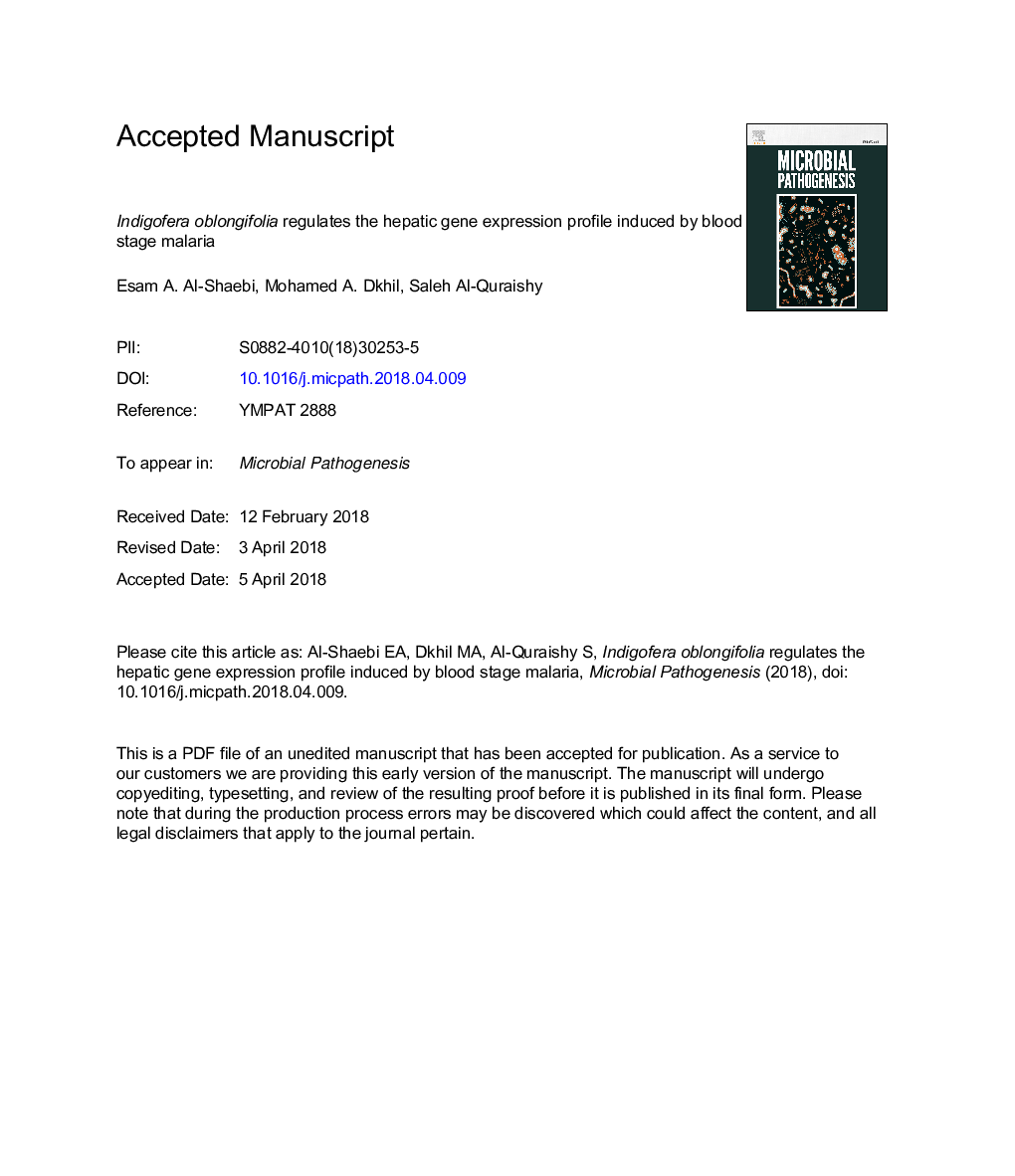| Article ID | Journal | Published Year | Pages | File Type |
|---|---|---|---|---|
| 8749494 | Microbial Pathogenesis | 2018 | 49 Pages |
Abstract
Malaria is still a major health problem worldwide. This study aimed to investigate the hepatoprotective role of Indigofera oblongifolia leaf extracts (ILE) against mice hepatic injury induced by Plasmodium chabaudi. Female C57BL/6 mice were treated with 100â¯mg/kg of ILE after infection with erythrocytes parasitized by P. chabaudi. On day 7 post-infection, the extract improved the histological alteration induced by the parasite. This was evidenced by the decreased histological index induced by ILE. Moreover, ILE was able to increase the hepatic antioxidant capacity and could significantly improve the decrease in erythrocyte count and hemoglobin content in mice blood plasma due to infection. ILE was also able to upregulate the expression of 24 genes related to metabolism and of 3 genes related to the immune response. Furthermore, the extract was able to downregulate the expression of 35 genes related to metabolism and of 82 genes related to immune response. Moreover, the microarray study showed that ILE regulated the change in gene expression induced by the parasite. Among these genes, we quantified the expression of cd209f, cyp7a1, Hsd3b5, Sult2a3, Lcn2, CcI8, Nos2, and saa3-mRNAs. These genes were regulated by ILE. Therefore, our results revealed the protective role of Indigofera oblongifolia against hepatic injury induced by blood stage malaria.
Related Topics
Life Sciences
Immunology and Microbiology
Microbiology
Authors
Esam A. Al-Shaebi, Mohamed A. Dkhil, Saleh Al-Quraishy,
